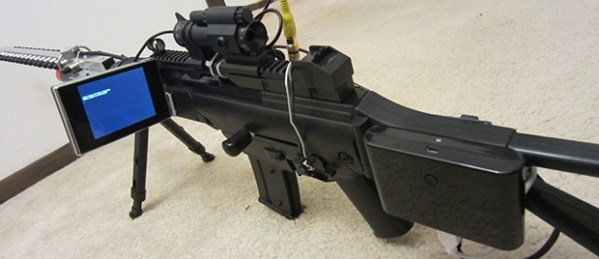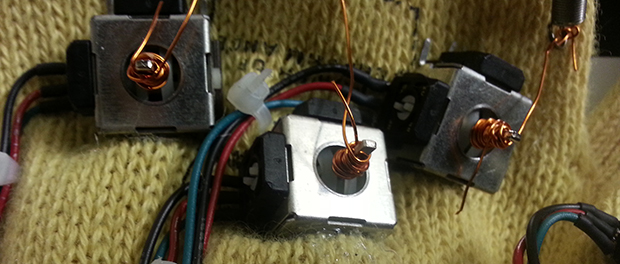A long time ago when WiFi and Bluetooth were new and ‘wardriving’ was still a word, a few guys put a big antenna on a rifle and brought it to DefCon. Times have changed, technology has improved, and now [Hunter] has built his own improved version.
The original sniper Yagi was a simple device with a 2.4 GHz directional antenna taped onto the barrel, but without any real computational power. Now that displays, ARM boards, and the software to put this project all together are cheap and readily available, [Hunter] looked towards ubiquitous computing platforms to make his Sniper Yagi a little more useful.
This version uses a high gain (25dBi) antenna, a slick fold-out screen, and a Raspberry Pi loaded up with Raspberry Pwn, the pentesting Raspi distro, to run the gun. There’s a button connected to the trigger that will automatically search the WiFi spectrum for the best candidate for cracking and… get cracking.
[Hunter] says he hasn’t taken this highly modified airsoft rifle outside, nor has he pointed out a window. This leaves us with the question of how he’s actually testing it, but at least it looks really, really cool.












